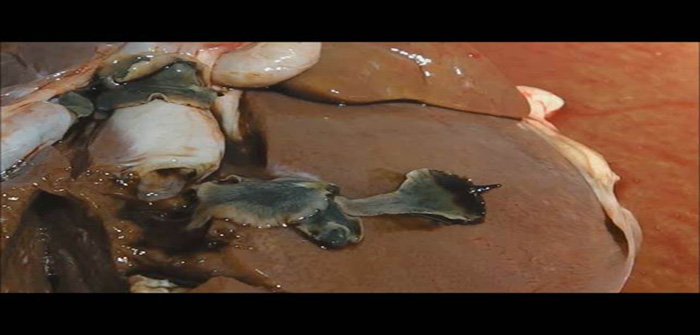Boehringer Ingelheim said that one New Year’s resolution for sheep and cattle farmers in many UK regions should be to review 2018 parasite control programmes with their vets.
A summer 30 per cent wetter than average and a mild December mean higher risk of liver fluke is likely in several UK regions.
NADIS predicts North, West and Central Scotland; West Wales, and Cornwall will experience a high fluke risk this year, whilst Eastern Scotland, and parts of North and South West Wales are expected to sustain a medium risk.
The high-risk liver fluke warning follows a year with one of the wettest summers on record. Heavy rainfall one year will increase the risk of liver fluke on pasture in the following grazing season.
Boehringer Ingelheim Animal Health’s ruminant veterinary advisor, Nicky Bowden, said: “Any untreated sheep in high risk areas should be checked for the presence of patent fluke infections acquired during the autumn prior to turnout. This can be done by taking pooled faecal samples from around 10 sheep, which will indicate whether the flock needs to be treated.
“At this time of year, efforts must be taken to reduce reliance on triclabendazole through husbandry measures and the use of alternative flukicide treatments which are effective against adult flukes, such as closantel, nitroxynil (TRODAX), oxyclozanide and albendazole.”
It is estimated that more than 25 per cent of bovine livers are condemned because of liver fluke damage. Cattle with chronic liver fluke infection typically show signs of chronic weight loss and diarrhoea.
Ms Bowden added: “Any untreated beef cattle that will graze potentially infected pastures, should either be treated for fluke before turnout, or screened for fluke by checking for the presence of fluke eggs in faeces, using pooled faecal samples from 10 animals.”


